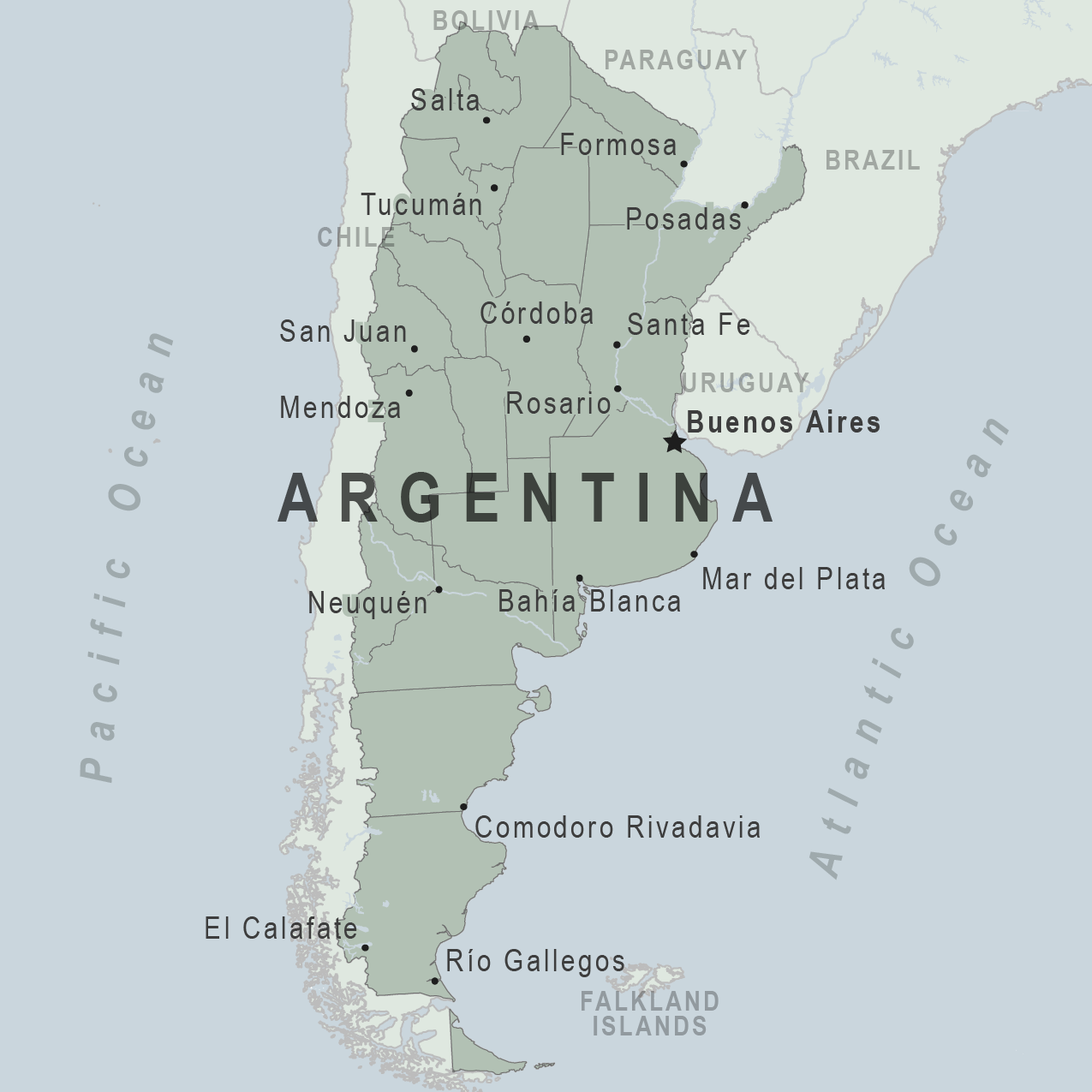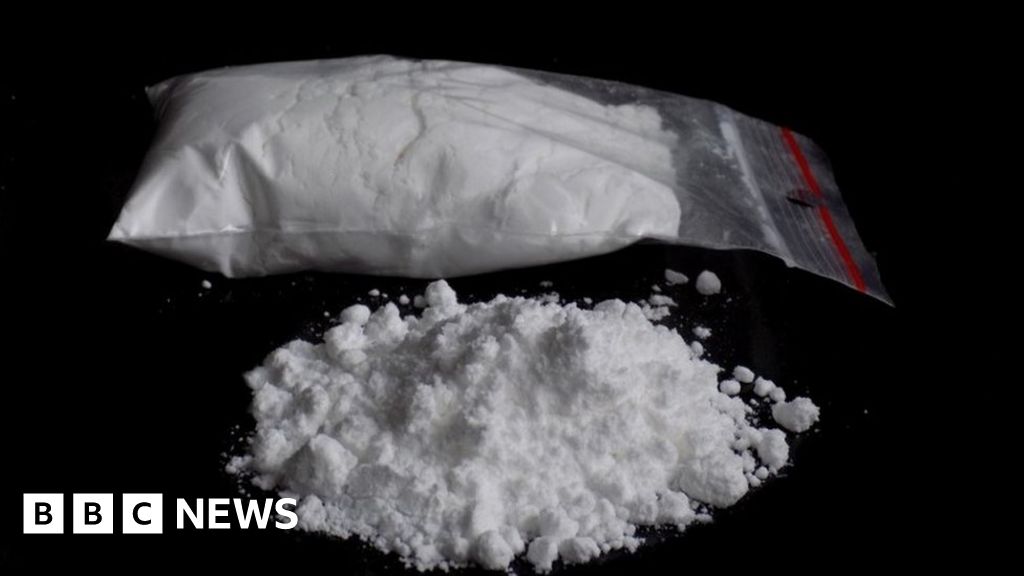What medications are illegal in Argentina
Argentina's drug laws have changed significantly in recent years, with a number of substances now prohibited that were once legal. This article will provide an overview of the current legal status of various medications in Argentina, including prescription and over-the-counter drugs, as well as illicit substances.
What Medications Are Illegal in Argentina?
Determining precisely which medications are entirely illegal in Argentina is challenging due to the complexities of Argentine law and the constant updates to regulations. There isn't a single, publicly accessible list that definitively covers all prohibited substances. Instead, illegality depends on several factors, including:
- The specific substance: Some medications containing controlled substances are outright banned. Others may be legal with a prescription, but unauthorized possession or distribution is illegal.
- The form of the medication: A medication might be legal in one form (e.g., a prescription pill) but illegal in another (e.g., a raw powder).
- The quantity possessed: Possession of even legal medications in extremely large quantities could be considered illegal.
- The intent of possession: The authorities will consider the purpose for which the medication is possessed. Personal use versus distribution plays a significant role.
- Registration and import/export laws: Bringing medications into Argentina from another country, even if legal elsewhere, requires proper authorization.
Controlled Substances and Narcotics
Argentina strictly controls narcotics and other controlled substances. Substances like cocaine, heroin, methamphetamine, and LSD are unequivocally illegal. Any medication containing these substances, even in trace amounts, will be considered illegal unless explicitly authorized for research or medical purposes under extremely strict regulations. The penalties for possession or trafficking of these substances are severe. It's crucial to understand that even possessing a medication that contains a controlled substance without a prescription is illegal.
Prescription Medications Without a Prescription
Many medications that are legal with a prescription in Argentina become illegal if possessed or distributed without one. This includes a wide range of medications, from painkillers (opioids) and sedatives to stimulants and anxiety medications. The legal framework requires a valid prescription from a licensed Argentine physician for these drugs. Purchasing these drugs online or from unauthorized sources is illegal and carries significant risks, including receiving counterfeit or dangerous medications.
Unauthorized Imports of Medications
Bringing medications into Argentina from abroad without the proper authorization is a serious offense. Even if the medication is perfectly legal in your country of origin, Argentine customs regulations might prohibit its entry. It's essential to declare all medications when entering the country and to ensure you have all the necessary documentation and import permits before traveling with them. Failure to do so could result in confiscation of the medications and potential legal repercussions.
Medications Containing Banned Ingredients
Argentina may prohibit medications that contain certain ingredients considered unsafe or ineffective. These ingredients might be legal in other countries but not in Argentina. Keeping abreast of the constantly evolving regulations is nearly impossible for an individual, so it's safest to only use medications prescribed by Argentine doctors.
Penalties for Illegal Medication Possession or Distribution
Penalties for violating medication laws in Argentina vary widely, depending on the specific substance, quantity, and circumstances. They can range from significant fines to imprisonment. Trafficking or large-scale distribution often results in more severe consequences than personal use. Legal representation is critical if you are accused of any violation.
| Medication Type | Legality Status | Penalties for Illegal Possession |
|---|---|---|
| Cocaine | Illegal | Severe fines and imprisonment |
| Prescription painkillers (without prescription) | Illegal | Fines, potential imprisonment |
| Unauthorized imported medications | Illegal | Confiscation, fines, potential imprisonment |
| Medications containing banned ingredients | Illegal | Fines, potential imprisonment |
| Heroin | Illegal | Severe fines and imprisonment |
Can I bring my medication to Argentina?

Bringing medication into Argentina can be complex and depends on several factors. While you are generally allowed to bring in a personal supply of medication for your own use, there are strict regulations you must adhere to. Failure to comply can result in confiscation of your medication or even legal penalties. It is crucial to understand these rules before your trip to avoid problems at customs.
Required Documentation
You will need to provide proper documentation for your medication. This typically involves a prescription from your doctor, clearly indicating the medication name, dosage, and quantity. It's strongly recommended to have this prescription in both your native language and Spanish. Additionally, a letter from your doctor explaining your medical condition and the necessity of the medication might also be helpful. Having your medication in its original packaging is also crucial for identification purposes.
- Original prescription from your doctor
- Doctor's letter explaining your medical condition and need for medication
- Medication in its original packaging
Types of Medication Allowed
Argentina generally permits the importation of prescription medications for personal use in reasonable quantities. This means you can bring enough to cover your trip, but not an excessive amount that might suggest intent for resale. Controlled substances, however, are subject to much stricter regulations and may require special permits or authorization in advance. Always check the specific regulations for any medication you are bringing, especially if it contains narcotics or other controlled substances.
- Prescription medication for personal use is generally allowed.
- Controlled substances require special permits and prior authorization.
- Quantities should be reasonable and sufficient for the duration of the trip.
Quantity Limits
There's no set, universally applicable quantity limit for bringing medication into Argentina. The permissible amount is typically determined on a case-by-case basis by customs officials, considering factors such as the length of your stay, the dosage of your medication, and the severity of your medical condition. Bringing more than a reasonable amount for your trip could raise suspicion and lead to problems. It's best to err on the side of caution and bring only what's necessary.
- No fixed quantity limit; assessed on a case-by-case basis.
- Bring only enough medication for the length of your stay.
- Excessive amounts may be confiscated.
Customs Declaration
You must accurately declare all medication on your customs declaration form. Failing to declare medication, even if it's for personal use, can have serious consequences. Be prepared to show customs officials your prescription and any other supporting documentation. Accuracy and transparency are essential in this process to avoid complications.
- Declare all medication on the customs form.
- Be prepared to present your prescription and supporting documentation.
- Honesty and accuracy are crucial.
Seeking Clarification
If you have any doubts or concerns about bringing your medication to Argentina, it is strongly recommended to contact the Argentinian embassy or consulate in your country well in advance of your trip. They can provide the most up-to-date and accurate information regarding medication regulations. You can also consult with your doctor or pharmacist for advice on proper documentation and procedures.
- Contact the Argentinian embassy or consulate for clarification.
- Consult your doctor or pharmacist for guidance.
- Plan ahead and ensure you have all necessary documentation.
What medication is not allowed in Argentina?
There isn't a definitive, publicly accessible list of medications completely banned in Argentina. The regulations are complex and involve several factors, making it difficult to provide a comprehensive answer. Instead of a blanket ban on specific medications, Argentina's regulatory system focuses on controlled substances, requiring specific permits and licenses for import, distribution, and prescription. The legality of a medication often depends on its registration status with ANMAT (Administración Nacional de Medicamentos, Alimentos y Tecnología Médica), the national regulatory agency. A medication not registered with ANMAT is effectively not allowed for sale or distribution within the country. Furthermore, restrictions can be placed on medications based on their active ingredients, dosage forms, and intended uses. It's crucial to understand that even medications legally available in other countries might not be permitted in Argentina without proper authorization.
1. Controlled Substances and Narcotics
Argentina strictly controls the import, distribution, and use of narcotics and other controlled substances. These are subject to very specific regulations and require special permits for both medical professionals and patients. Unauthorized possession, import, or distribution is illegal and severely punishable. This includes, but is not limited to, various opioids, stimulants, and hallucinogens. The specific substances under control and the level of control may change over time based on international treaties and national legislation.
- Opioids: Many opioid-based pain medications are tightly regulated and require special prescriptions and authorizations.
- Stimulants: Amphetamines and other stimulants are heavily restricted due to their potential for abuse.
- Hallucinogens: The use, possession, and trade of hallucinogenic substances are strictly prohibited.
2. Medications Requiring Specific Authorizations
Certain medications, even if containing non-controlled substances, might require special authorizations for import or use due to their potential side effects, limited efficacy, or lack of clinical trials. These authorizations often necessitate approval from ANMAT and involve documentation regarding the patient's condition and the medication's necessity. The process can be lengthy and requires substantial justification. Obtaining such authorizations is not always guaranteed.
- Novel medications: Recently developed medications may need to undergo extensive evaluation before being authorized.
- Medications with restricted use: Some medications are only allowed for specific conditions or patient groups.
- Medications not registered with ANMAT: Any medication not registered with ANMAT is considered illegal for sale or use in Argentina.
3. The Role of ANMAT in Medication Regulation
ANMAT plays a central role in determining which medications are allowed in Argentina. Its regulations cover various aspects, from manufacturing standards to labeling requirements and import/export procedures. ANMAT's approval is crucial for any medication to be legally marketed and distributed in Argentina. The agency actively monitors the market, taking action against any unauthorized or substandard medication. They also work to ensure the quality, safety, and efficacy of medicines available to the Argentine population.
- Registration of medications: The registration process is extensive and involves rigorous evaluation of safety, efficacy, and quality.
- Market surveillance: ANMAT actively monitors the market for illegal or substandard medications.
- Enforcement of regulations: ANMAT has the power to impose penalties on those who violate medication regulations.
4. Importation of Medications
Importing medications into Argentina, even for personal use, can be complicated. It is generally advisable to obtain necessary prescriptions and permits prior to bringing medications across the border. Travelers should consult with ANMAT or the Argentine embassy/consulate in their home country to understand the regulations concerning the importation of specific medications. Failure to comply with these regulations can result in confiscation of the medication and potential legal repercussions.
- Personal use import: Even for personal use, medications may require documentation and permits.
- Commercial import: Commercial importation of medications necessitates extensive documentation and compliance with specific requirements.
- Penalties for non-compliance: Penalties for importing unauthorized medications can be significant.
5. Seeking Clarification on Medication Legality
Individuals seeking clarification about the legality of a specific medication in Argentina should directly contact ANMAT or consult with a qualified medical professional in Argentina. Relying on unofficial sources or assuming that a medication's legality in one country translates to another can be risky and potentially lead to legal issues. Accurate information regarding medication regulations is crucial for ensuring safe and legal access to necessary treatments.
- Contact ANMAT directly: The agency provides information on medication regulations and registration.
- Consult with an Argentine physician: A local physician can advise on appropriate and legally accessible medications.
- Avoid relying on unreliable sources: Seek information only from reputable and official sources.
What drugs are illegal in Argentina?

Argentina's drug laws are primarily outlined in Law 23.737, which prohibits the production, trafficking, and consumption of various substances. The specific classification and penalties vary depending on the drug and the quantity involved. While the law focuses on prohibiting the illegal trafficking of narcotics, possession for personal use is also subject to penalties, although these are typically less severe than those for trafficking. The severity of the penalties depends on the type of drug, the amount involved, and whether the individual is deemed to be a part of an organized criminal network. It's important to note that the legal landscape is complex and subject to interpretation by the courts.
Schedule I Narcotics
Schedule I narcotics in Argentina are considered the most dangerous and carry the harshest penalties. These substances are generally prohibited with almost no exceptions. Possession, trafficking, and cultivation are all strictly forbidden and result in significant prison time and fines. The specifics of sentencing will depend upon the quantity found, and participation in trafficking.
- Cocaine: This is a highly controlled substance, and trafficking large amounts can lead to lengthy prison sentences.
- Heroin: Similar to cocaine, possession and especially trafficking of heroin are extremely serious offenses.
- LSD: The manufacture, distribution, and possession of LSD are heavily penalized.
Schedule II Narcotics
Schedule II narcotics are also illegal, but penalties may be somewhat less severe than for Schedule I, depending on the circumstances. These drugs are still heavily controlled and possession, even for personal use, can result in significant fines or even imprisonment.
- Cannabis (Marijuana): While there is growing debate around the legalization of cannabis for medicinal or recreational use in Argentina, it remains illegal under federal law. Possession of small amounts may result in fines or community service, but larger quantities or evidence of trafficking will result in harsher penalties.
- Amphetamines: The production, distribution and possession of amphetamines are all prohibited and result in legal repercussions.
- Methamphetamine: Similar to amphetamines, this drug is illegal and possession or distribution carries significant penalties.
Precursors
Chemical precursors used in the production of illegal drugs are also subject to strict regulations and penalties. These substances, while not illicit drugs themselves, are crucial in the manufacturing process. The possession and sale of these chemicals without proper authorization are considered serious crimes.
- Ephedrine: Used in the production of methamphetamine.
- Pseudoephedrine: Another key ingredient for methamphetamine production.
- Various solvents and acids: Depending on their use and intent, various chemicals can also be deemed illegal precursors.
Penalties and Sentencing
Penalties for drug offenses in Argentina vary considerably, depending on the specific drug, the amount involved, and the nature of the offense (e.g., possession, trafficking, cultivation). Sentences can range from fines to lengthy prison terms. There's also a differentiation made between possession for personal use and trafficking, with the latter usually leading to far more severe consequences. Factors like prior convictions can also significantly impact sentencing.
- Fines: For minor offenses, particularly possession of small amounts of certain drugs.
- Imprisonment: For larger amounts or trafficking, with longer sentences for more serious offenses and larger quantities of drugs.
- Community service: May be part of the sentence for lesser offenses.
Legal Developments and Ongoing Debates
Argentina's drug laws are constantly evolving, with ongoing debates surrounding the legalization of medicinal and recreational cannabis. While still illegal federally, several provinces have implemented regulations related to medical cannabis, indicating a potential shift in policy. These ongoing discussions highlight the complex and dynamic nature of drug laws in the country.
- Medical Cannabis: The legal framework for medical cannabis access is still under development in several provinces.
- Recreational Cannabis: There are ongoing discussions, though there is no widespread legalization at the federal level as of yet.
- International cooperation: Argentina collaborates with international agencies to combat drug trafficking.
What not to bring to Argentina?

Argentina, while welcoming to tourists, has certain items that are best left at home. Bringing the wrong things can lead to inconvenience, delays, or even legal trouble. Consider the climate, customs, and local laws before packing your bags. Careful planning will ensure a smoother and more enjoyable trip.
What Not to Bring to Argentina: Electronics
While Argentina has readily available electronics, bringing your own can be problematic. Voltage differences are a significant concern, meaning your devices may not work without a transformer. Additionally, certain electronic devices may be subject to import tariffs. It's best to rely on readily available items locally rather than risk damage or incurring unexpected costs.
- Voltage differences: Argentina uses 220V, while many countries use 110V. Failure to use a proper converter can damage your devices.
- Import tariffs: Some electronics might be subject to significant import duties upon arrival.
- Repair difficulties: Finding replacement parts or repair services for specific electronic models might be challenging.
What Not to Bring to Argentina: Excessive Cash
While it’s wise to have some Argentine Pesos (ARS) upon arrival, carrying large amounts of cash is generally discouraged. Argentina has a fluctuating economy, and carrying excessive cash increases the risk of theft or loss. Using credit cards and debit cards is generally a safer and more convenient option. Relying on ATMs for local currency is often the best way to manage your finances.
- Theft risk: Large amounts of cash make you a target for thieves.
- Fluctuating exchange rates: Carrying large sums of foreign currency can result in losses due to exchange rate fluctuations.
- ATM availability: ATMs are widely available in most urban areas, allowing easy access to local currency.
What Not to Bring to Argentina: Illegal Substances
This should go without saying, but bringing any illegal substances into Argentina is strictly prohibited and carries severe penalties, including lengthy prison sentences and hefty fines. Be mindful of local laws and regulations regarding controlled substances.
- Strict penalties: Argentina has zero tolerance for illegal drug possession or trafficking.
- Airport security: Customs officials conduct thorough searches at airports and border crossings.
- Legal ramifications: Consequences for violations can be severe and far-reaching.
What Not to Bring to Argentina: Inappropriate Clothing
While Argentina is generally relaxed in its dress code, it’s wise to avoid overly revealing or offensive attire, especially when visiting religious sites or more formal establishments. Respect for local customs and traditions is important, and dressing appropriately demonstrates cultural sensitivity.
- Religious sites: Many churches and other religious sites require modest dress.
- Formal occasions: Certain restaurants and events may have dress codes.
- Cultural sensitivity: Showing respect for local customs is crucial for a positive experience.
What Not to Bring to Argentina: Outdated Travel Guides
Argentina's economic and social landscape is constantly evolving. Using outdated travel guides can lead to misinformation about prices, transportation options, and local regulations. It is always advisable to supplement your planning with up-to-date online resources and local advice to ensure your trip is as smooth as possible.
- Price changes: Prices for goods and services can change rapidly.
- Transportation updates: Public transport routes and schedules can be altered.
- Outdated information: Local regulations and laws can change frequently.
What are the general categories of medications illegal in Argentina?
Argentina, like many countries, regulates medications strictly. While the specific list of prohibited substances changes, certain categories consistently fall under illegal status. These include narcotics, which are generally opioids and other highly addictive substances like heroin, cocaine, and methamphetamine. Possession, distribution, and even cultivation of these substances carry severe penalties. Another significant category is unapproved medications. This means any drug not officially registered and authorized for sale within the Argentinian healthcare system. This often involves medications that are available in other countries but haven't undergone the necessary testing and approval processes in Argentina. Importation of such unapproved medications can lead to legal repercussions. Finally, certain anabolic steroids and other performance-enhancing drugs are typically classified as illegal without proper medical prescription and authorization. The regulatory landscape also extends to the sale and distribution of these items. Penalties can be significant depending on the quantity involved and the intent, whether for personal use or broader distribution. Specific regulations and classifications can vary and are subject to updates, so consulting official sources is crucial for accurate and current information. The Argentinian government's health and regulatory agencies are the most reliable sources for up-to-date information on illegal medications.
What happens if I bring prescription medication into Argentina that is legal in my home country but illegal in Argentina?
Bringing prescription medication into Argentina that is legal elsewhere but illegal in Argentina can lead to significant trouble. Even with a prescription from your home country, Argentinian customs officials might not recognize it, potentially leading to confiscation of the medication. In some cases, it could lead to arrest and prosecution, depending on the specific drug and the amount involved. It's extremely important to research the legal status of your medication in Argentina before traveling. If you have any doubts, it's best to seek professional advice from a doctor or pharmacist in both your home country and Argentina to determine the safest and most legal way to manage your medication needs while in Argentina. Failing to check regulations beforehand could result in serious consequences, far exceeding the inconvenience of leaving the medication at home or exploring alternative treatments. The specific penalties can range from fines to imprisonment depending on the severity of the offense. The authorities might also consider your intentions, whether personal use or intent to distribute. Therefore, ensuring compliance with Argentinian law is paramount for a smooth and legal trip.
Are there any exceptions for bringing illegal medications into Argentina?
While there are few exceptions regarding bringing illegal medications into Argentina, some situations might involve a process of legal authorization. These typically involve serious medical conditions where the medication is crucial for the individual's health and is unavailable in Argentina. Even in such cases, obtaining prior authorization from Argentinian health authorities is absolutely essential. This usually requires providing substantial medical documentation demonstrating the necessity of the specific medication for treatment. This process can be quite lengthy and complex, involving bureaucratic hurdles and potentially significant delays. Without this pre-authorization, even under dire circumstances, the risk of facing legal consequences remains high. Therefore, it's always strongly advised to contact the Argentinian embassy or consulate in your home country well in advance to explore the possibility of obtaining such authorization before travelling. The specific steps and requirements for authorization may vary depending on the particular medication and the individual's medical situation.
What resources can I use to verify the legal status of a medication in Argentina?
Determining the legal status of a medication in Argentina requires consulting official sources. The ANMAT (Administración Nacional de Medicamentos, Alimentos y Tecnología Médica) is the primary regulatory agency responsible for medications, food, and medical technology in Argentina. Their website is the most reliable source for information on approved medications and related regulations. It's crucial to check this website directly for any specific medication, as unofficial sources may contain outdated or inaccurate information. Furthermore, consulting with a pharmacist or doctor in Argentina can provide valuable insights and advice on the legal and practical aspects of obtaining and using medications in the country. They can offer updated information and guide you on navigating the healthcare system. Attempting to find information from unofficial sources carries a significant risk of encountering inaccurate or misleading information that could have legal implications. Therefore, relying on official channels and trusted professionals is paramount for accurate and reliable information on medication legality in Argentina.

Deja una respuesta